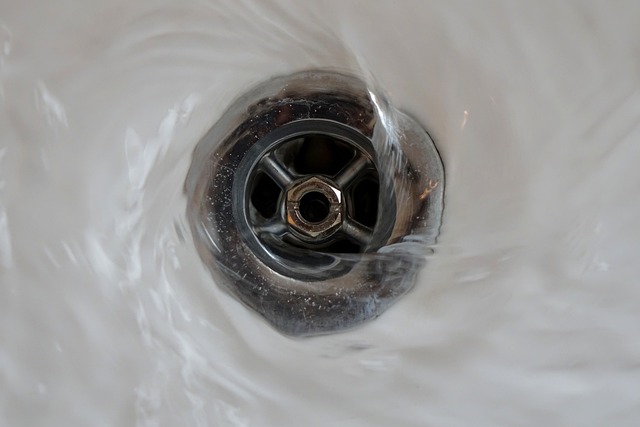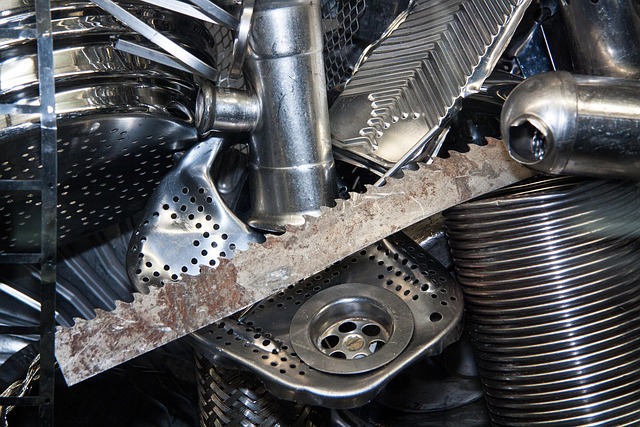Ignoring warning signs like slow drainage, gurgling noises, or unusual odors can lead to severe plumbing issues and health hazards. Recognizing and addressing these signs of a clogged drain promptly is key to preventing costly repairs and emergency situations. Regular maintenance practices, professional cleaning services, and mindful disposal habits are essential for keeping drains clear and maintaining a hygienic living environment.
Tired of that nagging drain problem? It’s time to face the music—ignoring “drain drama” could lead to costly repairs. This article equips you with the knowledge to recognize common signs of a clogged drain before they become major headaches. From slow drains to gurgling sounds, we’ll guide you through the warning signs and share preventative measures to keep your pipes in top shape. Say goodbye to unexpected plumbing bills and hello to a stress-free home!
- Recognizing Common Warning Signs of a Clogged Drain
- The Impact of Neglecting Drain Clogs
- Preventative Measures and Maintenance Tips for Healthy Drains
Recognizing Common Warning Signs of a Clogged Drain

Recognizing Common Warning Signs of a Clogged Drain
One of the most frustrating experiences is stepping into your kitchen or bathroom and encountering a sluggish drain. Water that takes forever to drain, gurgling sounds, or an unusual odor are clear signs something is amiss. These are not just inconveniences; they could indicate a more serious problem, such as a clogged pipe, which can lead to water damage and costly repairs if left unchecked.
Pay attention to the flow of water in your drains. If it slows down significantly or stops altogether, especially after flushing a toilet or running a dishwasher, it’s a strong indicator of a clog. Additionally, look out for recurrent flooding in certain areas around your sinks or showers, as this could be caused by a build-up of debris or grease blocking the drainage system.
The Impact of Neglecting Drain Clogs

Neglecting drain clogs can lead to significant issues, impacting both your wallet and daily life. Over time, small clogs can grow into major problems, potentially causing severe damage to your plumbing system. When a drain is clogged, it may start to back up, leading to an unpleasant and unhygienic situation. This not only creates an unsanitary environment but also increases the risk of health issues, especially if left untreated.
Ignoring these early signs, such as slow drainage or strange odours, can result in more severe consequences. It might cause water damage to your property, leading to costly repairs and replacements. Moreover, a clogged drain could be an indicator of a bigger plumbing problem within your home, which, if not addressed promptly, could escalate into an emergency situation.
Preventative Measures and Maintenance Tips for Healthy Drains

Regular maintenance and preventative measures are key to keeping drains healthy and avoiding costly repairs. One of the best ways to prevent clogs is to be mindful of what goes down your drain. Avoid disposing of grease, coffee grounds, or large food particles, as these can solidify and stick to pipe surfaces over time. Instead, use hot water regularly to flush out any built-up gunk, and consider investing in a drain cover to catch hair and other debris.
Additionally, scheduling professional drain cleaning services at least once a year is highly recommended. These experts have the tools and knowledge to navigate through intricate pipe systems, removing stubborn clogs and ensuring optimal drainage. Staying proactive by being aware of the Signs of a Clogged Drain and taking preventive action will help you save money in the long run and keep your plumbing system running smoothly.
Identifying the early warning signs of a clogged drain is key to avoiding costly repairs. By recognizing common symptoms like slow drainage, unusual odors, and recurring clogs, you can take proactive measures to prevent bigger problems. Regular maintenance and preventative actions, such as using drain covers and avoiding flushing non-biodegradable materials, will help keep your drains flowing smoothly. Don’t let ignored clogs turn into a plumbing disaster—take action now to maintain a clog-free home.
